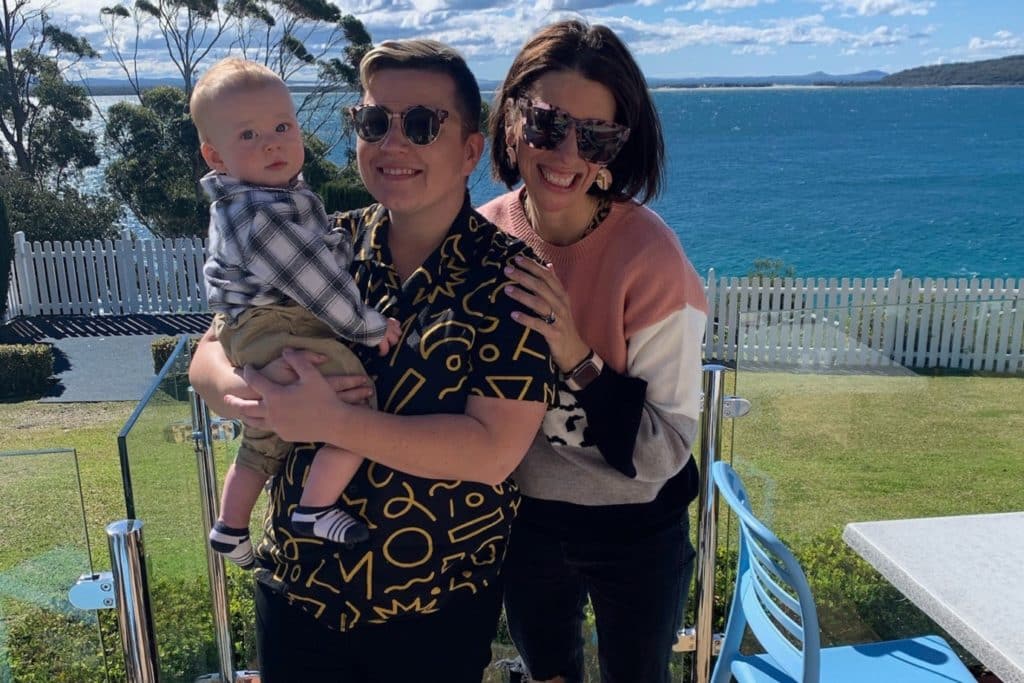A formal complaint has been lodged against former assistant treasurer Michael Sukkar and the Australian Bureau of Statistics (ABS) over a failure to properly count LGBTIQ+ people and families in last year’s Census.
The complaint to the Australian Human Rights Commission has been lodged by co-complainants April Long (they/them) and national LGBTIQ+ group Equality Australia.
The complaint alleges that Sukkar and the ABS unlawfully discriminated against the LGBTIQ+ community because it did not ask the right questions to fully capture and count LGBTIQ+ people in Australia. Specifically, it did not ask appropriate questions on sexual orientation, gender identity and variations in sex characteristics.
“On Census night, my partner Kelly and I were really excited – we had a special dinner and really made a big deal of it,” said co-complainant April Long.
“Our son Kaison was 8 months old, so we weren’t just doing the Census for us, but for him. We wanted our new little family to be counted”.
According to Long, the Census excluded their role as a parent and made assumptions about their gender.
“As we were filling out the form, it kept going from bad to worse. Kaison has two Mums – I’m Mumma and Kelly is Mummy – but the form asked where Kaison’s mother and father were born. Our family wasn’t included at all – I felt excluded, and it made Kaison’s family invisible,” said April Long.
“Our initial reaction was shock. We were unable to complete it accurately. It didn’t capture us, it made us feel invisible and it didn’t count us.”

Ghassan Kassisieh, Equality Australia’s Legal Director, said every person in Australia should be recognised for who they are as individuals and families.
“The 2021 Census could have provided crucial information about LGBTIQ+ people to inform the response of governments and non-government organisations to better address our communities’ needs, particularly in health and social services,” Kassisieh said.
“Instead, it failed to ask the right questions to properly count LGBTIQ+ people.”
Kassisieh said it remains a fact we still do not know how many LGBTIQ+ families there are in Australia, while many in the LGBTIQ+ community were forced to answer questions that were inappropriate.
“Thousands of rainbow families like April’s were asked insensitive and offensive questions that assumed they were in a heterosexual relationship, and many LGBTIQ+ people were simply ignored by the failure to ask appropriate questions about us and our lives at all.”
According to Equality Australia, some key concerns raised about the 2021 Census include that there was no separate question about sexual orientation. The question about sex also did not make sense to gender diverse people and left trans people “invisible”. And without a separate question on variations in sex characteristics, intersex people were also rendered invisible.
“Requiring LGBTIQ+ people to complete a mandatory census that was ill-fitting at best or rendered them invisible at worst was offensive and harmful. But it was also bad public policy,” said Long.
“Ultimately, this was an act of discrimination by our government against us, and it must be addressed.
“Kaison starts school in 2026 and I can’t tell him how many kids there are just like him.”
The ABS has issued a statement in response to the complaint, saying it is disappointed to hear about the concern and will “work with the individual and organisations involved”.
“The ABS will provide full support to the AHRC in relation to any complaint and seek a resolution with concerned parties,” the statement said. “The Government of the day determines the topics that are included in each Census.”
“The ABS worked with key data users and stakeholders across many topics in the development of the 2021 Census questions. This included peak bodies representing LGBTIQ+ communities and testing of the questions with members of these communities.”
The ABS said it is due to start consultation in late 2022 on what topics to include in the next Census, due in 2026.
“The ABS will engage with the public and stakeholders, including LGBTIQ+ communities, to understand data needs and test any proposed changes. ABS’ recommendations on 2026 Census topics will be submitted to the Australian Government in 2024 for their decision.”
According to Equality Australia, the complaint will now progress to the Australian Human Rights Commission for consideration of whether it can be privately resolved.
“We hope that this complaint will help build the case for the newly elected Albanese government and the ABS to right the wrongs of the past and to ensure that LGBTIQ+ people in Australia are properly counted in the next Census,” said Kassisieh.
Feature Image: April Long with their family. Supplied: Equality Australia


